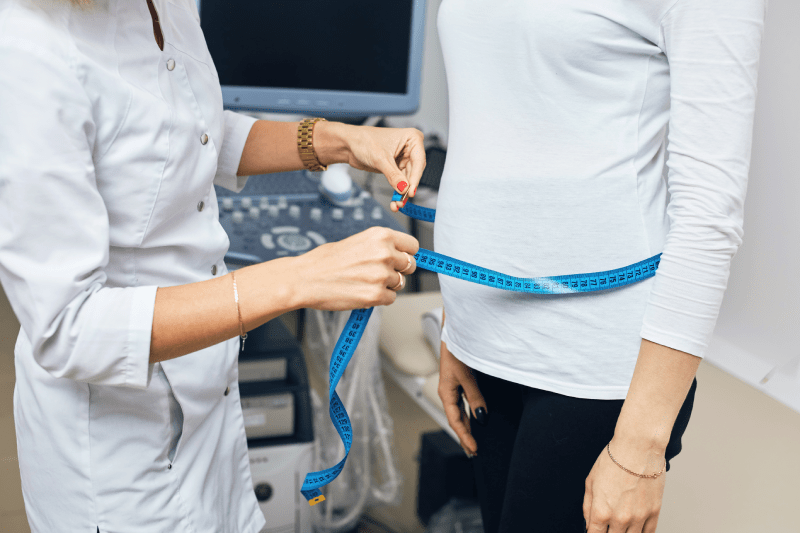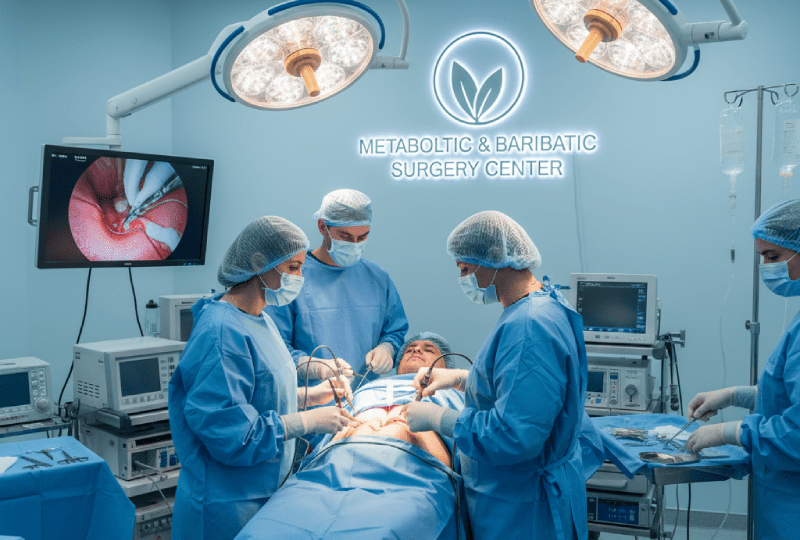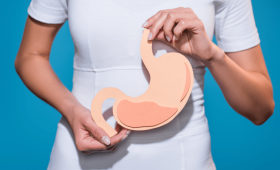Why Is Turkey Preferred For Gastric Bypass Surgery?
Turkey has become a worldwide center of attraction in the field of Gastric Bypass surgeries. The main reason for this is that it offers much more affordable prices compared to similar quality operations in Europe and North America. Turkish hospitals utilize state-of-the-art equipment, and surgeons have received international training in bariatric surgery and performed hundreds of successful operations. In addition to the high level of surgical expertise and low costs, the opportunity for patients to combine their treatment processes with a culturally rich travel experience also makes Turkey the preferred choice. This combination of economical and high-quality health services provides great reassurance to international patients looking for excellent medical care abroad.
What Items Does The Cost Of Gastric Bypass Surgery Cover?
The cost of Gastric Bypass surgeries in Turkey is generally structured as all-inclusive packages. These packages cover not only the surgical procedure itself, but also all medical materials used during the operation, anesthesia and surgeon fees, and the mandatory post-operative hospital stay (typically 3 to 4 days). Additionally, most packages include the patient’s airport transfers, accommodation fees, and all necessary pre-operative tests for risk assessment (Endoscopy, Cardiology, Internal Medicine, Blood Tests, etc.). This transparent package structure allows international patients to plan their budgets clearly and minimizes the risk of encountering unexpected additional costs during their treatment journey.
How Is A Suitable Candidate For Gastric Bypass Determined?
Suitability for Gastric Bypass surgery requires a meticulous evaluation process and primarily depends on the patient’s Body Mass Index (BMI). Generally, individuals with a BMI of 40 or higher, or those with a BMI between 35 and 40 who have serious co-morbidities associated with obesity, such as Type 2 Diabetes, severe sleep apnea, or uncontrolled high blood pressure, are considered suitable candidates. The patient is also expected to have attempted and failed to achieve lasting success with previous nutrition and exercise programs. Furthermore, the patient’s psychological and mental readiness for the permanent lifestyle changes brought about by the surgery forms the basis of the final surgical decision.
How High Is The Experience Of Surgical Teams In Turkey?
Surgeons and teams specializing in bariatric surgery in Turkey have undergone global training and possess extensive experience. Centers in major cities, in particular, have reached high case volumes that meet international standards in bariatric surgery. This intense experience enables surgeons to successfully manage even the most complex cases and skillfully apply minimal invasive (laparoscopic) techniques. The fact that the surgical team holds international certifications, regularly attends congresses, and has performed thousands of successful operations is the greatest proof that they provide a reliable surgical environment for patients seeking quality care.
Which Medical Tests Are Required Before The Operation?
Prior to Gastric Bypass surgery, a comprehensive series of medical evaluations are performed to minimize the surgical risk and understand the patient’s overall health status. The standard tests required include a complete blood count, a biochemistry panel (kidney, liver, and thyroid functions), and vitamin and mineral levels. An ECG and Cardiology examination are performed to check heart health, while a chest X-ray and respiratory function test are requested to determine the suitability of the respiratory system. Additionally, an endoscopy procedure is frequently performed by a Gastroenterologist to evaluate the internal structure of the stomach and detect potential ulcers or infections, ensuring pre-operative safety.
Which Method Is Used To Perform The Gastric Bypass Surgery?
Gastric Bypass surgery is largely performed today using the laparoscopic surgery (minimal invasive) method. In this technique, only a few small incisions (usually between 0.5 cm to 1 cm) are made in the abdominal area, and thin surgical instruments and a high-resolution camera are inserted through these cuts. The surgeon performs the procedure by viewing the internal images on a monitor. The surgery is based on the principle of reducing the stomach (creating a new stomach pouch approximately the size of a small egg) and altering the nutrient absorption pathway by connecting a part of the small intestine to this new pouch. The laparoscopic method offers less pain and much faster recovery for the patient.
What Is The Typical Length Of Hospital Stay?
The duration of the hospital stay after Gastric Bypass surgery in Turkey varies according to the patient’s general recovery rate and the surgical team’s follow-up protocols, but it is set at an average of 3 to 4 days. During this period, patients are kept under close post-operative observation; fluid and medication support are provided intravenously. The goal is for patients to start light walking and transition to a liquid diet the day after the surgery. This short but intensive observation period aims to minimize the risk of early complications, which is necessary before the patient can be safely discharged to their home or hotel.
How Long Should One Stay In Turkey After The Operation?
It is strongly recommended that international patients undergoing Gastric Bypass surgery stay in Turkey for a total of 7 to 10 days after the operation. The time remaining after the 3-4 days spent in the hospital is for the patient to rest in accommodation close to the hospital (hotel or residence). This additional period allows the surgical team to closely monitor you even after discharge, perform wound checks, and immediately intervene in case of a possible early complication. Completing this waiting period before receiving full and safe travel clearance is critically important for patient safety.
What International Accreditations Do Hospitals In Turkey Hold?
Many hospitals in Turkey that provide bariatric surgery services hold internationally recognized accreditations that demonstrate the highest standard of service quality. Chief among these is JCI (Joint Commission International) accreditation. JCI verifies that the hospital’s management, patient safety, and clinical services meet international standards. Furthermore, many facilities hold national Ministry of Health approvals and certifications from relevant professional organizations like the European Bariatric Surgery Society (EBS). These accreditations are a significant indicator that the treatment provided to international patients is both reliable and of high quality.
What Is The Post-Operative Nutritional Regimen Like?
The post-operative nutritional regimen is the key to Gastric Bypass success and consists of a strict, gradual process. The first 1-2 weeks involve consuming only clear and full liquid foods (water, broth, strained soup). The next 2 weeks transition to pureed, soft foods (yogurt, vegetable purees). The slow transition to solid foods begins approximately 4 weeks later. Patients are strictly required to consume small portions, chew every bite thoroughly, and avoid drinking fluids during meals. High-protein nutrition and regular water consumption to prevent dehydration are of vital importance for long-term health.

What Is The Average Weight Loss Expected After Surgery?
Gastric Bypass is one of the bariatric surgery methods with the highest and most permanent weight loss rates. Patients can generally expect to lose an average of 60% to 80% of their excess weight within the first 1 to 2 years. Weight loss is very rapid, especially within the first 6 months due to hormonal changes, then slows down and enters a plateau phase around the 18th month. However, this success depends entirely on the restriction and malabsorption provided by the surgery, as well as the patient’s commitment to lifelong exercise and nutritional discipline.
What Are The Possible Risks Of Gastric Bypass Surgery?
Gastric Bypass carries some potential risks as it is a major surgical procedure. The most serious early risks include leakage from the newly created stomach pouch or intestinal connections, bleeding, and infection. Long-term risks include chronic nutritional deficiencies (vitamin and mineral deficiencies), Dumping Syndrome which occurs especially after consuming sugary or fatty foods, the formation of stomach ulcers, or, rarely, intestinal obstruction. These risks can be minimized by the surgery being performed by an experienced team, in an accredited hospital, and by the patient strictly following post-operative instructions.
How Is Post-Operative Pain Control Provided?
Gastric Bypass surgery, thanks to the laparoscopic technique, is much less painful compared to traditional open surgery. During the first 48 hours after the operation, strong intravenous or epidural pain medications are generally used to ensure patient comfort. Upon discharge from the hospital, prescription oral painkillers are provided for use at home. The surgeon and anesthesia team implement a special protocol to ensure that pain is continuously kept at an acceptable level. Most patients return to a slight feeling of discomfort that does not affect their daily activities within a few days.
What Should Be Considered When Choosing A Hospital?
When choosing a hospital in Turkey, several critical factors must be evaluated for the success and safety of the operation. First, check if the hospital has international accreditations such as JCI. The case volume and expertise of the surgical team in bariatric surgery are critically important. The hospital’s technological infrastructure, especially the quality of its laparoscopic equipment, is also essential. Furthermore, the availability of international patient coordination services specially designed for foreign patients and post-operative long-term follow-up protocols are important factors to consider when making a selection.
What Kind Of Preparation Diet Should Be Followed Before Coming To Turkey?
A strict preparation diet is mandatory in the weeks leading up to Gastric Bypass surgery, as instructed by your surgical team. The main purpose of this diet is to reduce visceral fat and especially the size of the liver. Shrinking the liver provides the surgeon with more visibility and maneuverability during the laparoscopic procedure, significantly increasing the safety of the operation. This diet generally consists of low-calorie, high-protein, carbohydrate-poor liquid or semi-solid foods. Your surgeon will provide a detailed protocol outlining exactly how long and with which foods you should follow this diet.
What Is The Full Recovery Time After The Operation?
The physical recovery time after Gastric Bypass is quite rapid. Patients start feeling better within a week after being discharged from the hospital. Returning to light work, such as office jobs, is generally possible within 2 to 4 weeks. However, it takes longer for the body’s internal healing to complete and for the incision sites to fully heal. Therefore, heavy lifting, strenuous sports, and strenuous physical activities must be strictly avoided for usually 6 to 8 weeks without the surgeon’s permission. Reaching full energy levels may take several months, but the consistent weight loss often provides strong motivation.
Under What Conditions Can The Surgery Be Canceled Or Postponed?
Since patient safety is always the priority, Gastric Bypass surgery may be canceled or postponed due to certain medical or preparation deficiencies. If a serious health problem that significantly increases the surgical risk in the heart, lungs, or another organ is detected as a result of comprehensive pre-operative tests, the operation is postponed. Furthermore, if the patient fails to comply with the pre-operative preparation diet specified by the surgeon and the liver does not shrink sufficiently, the surgeon may decide to postpone the surgery to ensure safety. Unexpected deterioration in the patient’s general condition on the day of surgery is also among the reasons for cancellation.
On Which Criteria Does The Long-Term Success Of The Surgery Depend?
The long-term success of Gastric Bypass surgery depends not only on the surgical technique but largely on the patient’s commitment to the post-operative lifestyle. The key to success is maintaining the nutritional rules set by the surgical team for life, particularly meeting protein targets and consistently taking the necessary vitamin/mineral supplements. Making regular physical activity a part of life is the most important way to maintain weight loss and support muscle mass. Additionally, regular check-ups by a team specialized in bariatric surgery are vitally important for monitoring health.

Are Vitamin Supplements Required For Life After Surgery?
Yes, vitamin and mineral supplements are absolutely mandatory for life for patients who have undergone Gastric Bypass surgery. Since the operation bypasses a significant portion of the small intestine, reducing nutrient absorption, the body cannot adequately absorb vital micronutrients such as iron, Vitamin B12, Vitamin D, and calcium. These deficiencies can lead to anemia, bone thinning (osteoporosis), and serious neurological problems in the long term. Therefore, regularly and disciplinedly using the high-dose multivitamins and special supplements prescribed by your surgical team is an indispensable part of healthy living.
Is Interpreter Support Provided To Patients Having Surgery In Turkey?
Hospitals and intermediary agencies in Turkey specializing in health tourism and serving international patients offer professional interpreter support as part of their standard services. This service guarantees that patients do not encounter any language barriers when communicating with surgeons, anesthesiologists, and nurses. Interpreter support is critically important for the accurate explanation of pre-operative risks, understanding consent forms, and the correct transfer of post-operative care instructions. In this way, patients feel secure, well-informed, and comfortable throughout their entire treatment process.
What Is Dumping Syndrome Seen After Gastric Bypass?
Dumping Syndrome is a condition that can occur in some patients after Gastric Bypass, triggered by the rapid passage of consumed food from the small new stomach into the small intestine. It is usually initiated by the consumption of high-sugar or high-fat foods. Early symptoms include palpitations, dizziness, diarrhea, abdominal pain, and excessive sweating. Dumping Syndrome serves as a feedback mechanism that indirectly supports weight loss by deterring patients from unhealthy eating habits. Strictly adhering to proper nutritional rules significantly reduces the risk of the syndrome occurring and manages symptoms.
How Is Long-Term Medical Follow-Up Performed After Surgery?
Long-term medical follow-up after Gastric Bypass is carried out according to a structured plan for international patients. Follow-up is usually requested at 3, 6, 9, and 12 months in the first year after surgery, and annually thereafter. When patients return to their home country, they continue follow-up remotely (via phone, video call) with the clinic that performed the surgery. The patient is expected to periodically visit a physician in their home country for blood tests and send the results to the surgical team. The clinic evaluates these results and updates the vitamin supplements and nutritional recommendations as needed.
What Steps Should Be Followed In Case Of A Possible Emergency?
Symptoms such as high fever, severe abdominal pain, persistent vomiting, or rapid heart rate in the early post-operative period (the first 1-2 weeks) can be signs of an emergency. In such a case, the patient must immediately contact the international patient coordination team of the clinic where the surgery was performed; these teams usually offer 24/7 emergency hotlines. If the patient is still in Turkey, they will be instantly directed to the hospital. If they are in their home country, it is vital that they go to the local emergency room and ensure the Turkish surgical team can communicate with the local doctors treating them.
What Special Preparations Should Be Made When Traveling To Turkey?
Patients planning medical travel to Turkey should make some special preparations to ease the process. Loose and soft clothing for post-operative comfort, a neck pillow for long flights, and compression stockings to reduce the risk of blood clots should be brought along. It is recommended to bring your specialized protein supplements or liquid diet products for use in the first few days after the surgery. Furthermore, it is essential to carry both digital and printed copies of all your medical history documents along with your travel and health insurance policies for any unforeseen circumstances.
Does Hair Loss Occur After Gastric Bypass?
Yes, temporary hair loss is quite common and expected, especially between 3 and 6 months after Gastric Bypass surgery. This shedding occurs as the body’s reaction to the physiological shock caused by rapid weight loss and surgical stress. It usually stops on its own within about a year, and hair begins to regrow. To manage this condition, the surgical team will provide recommendations, specifically advising you to pay close attention to adequate and regular protein intake, along with specific vitamin supplements that support hair health, such as biotin and zinc, which are often necessary due to malabsorption.
When Should Exercise Be Started After The Operation?
The process of starting exercise begins immediately after the surgery with light walking in the hospital and is gradually increased in parallel with recovery. Only slow-paced walking is allowed for the first 2 to 4 weeks after being discharged from the hospital. Strenuous exercises that strain the abdominal muscles, such as heavy lifting, sit-ups, or intense cardio, must be strictly avoided for at least 6 to 8 weeks without your surgeon’s approval. Regular and sustainable exercise is of great importance for maintaining long-term muscle mass and achieving long-term weight control.
How Does Smoking And Alcohol Use Change After The Operation?
There are very strict restrictions regarding smoking and alcohol consumption after Gastric Bypass surgery. Smoking must be permanently ceased before the surgery as it severely increases the risk of ulcers around the stomach and hinders wound healing. Alcohol is absorbed much faster by the body after the operation, which significantly increases the risk of alcohol poisoning and puts stress on the liver. Therefore, alcohol consumption is strictly forbidden for the first 6 months and should only be consumed very sparingly and cautiously with the surgeon’s approval thereafter.

Why Is Choosing A Medical Tourism Intermediary Company Vitally Important?
Choosing a professional medical tourism intermediary company like Cure Holiday is vital for ensuring your entire treatment process abroad proceeds safely, smoothly, and without stress. These companies not only verify the quality of the surgical center but also organize all logistical and administrative details on your behalf, including hospital selection, accommodation, all transfers, interpretation services, and post-operative follow-up. A reliable intermediary guarantees price transparency and significantly reduces the stress on the patient of undergoing treatment in a foreign country, allowing you to focus completely on your recovery.
What Is The Impact Of Gastric Bypass On Type 2 Diabetes?
Gastric Bypass is an extraordinarily effective metabolic treatment method for patients with Type 2 Diabetes. The vast majority of patients observe a rapid and dramatic improvement in their blood sugar levels immediately after surgery, even before significant weight loss has occurred. This improvement is explained by changes in hormones (especially GLP-1) secreted from the intestines. Approximately 80% to 90% of patients can completely stop or significantly reduce their Type 2 Diabetes medications. Due to this high success rate, Gastric Bypass is also recognized as “metabolic surgery” in the medical community.
How To Communicate With The Surgical Team Before Coming To Turkey?
The first and most important step before coming to Turkey is to initiate an online consultation process with the surgical team performing the operation or their representatives, the international patient coordinators at Cure Holiday. During this process, the patient’s medical history, current BMI value, accompanying diseases, medications used, and recent blood test results are shared. Based on this information, the surgical team performs a preliminary evaluation and presents a personalized treatment plan, estimated cost quote, and pre-operative preparation instructions. Clarification of all your questions should be provided during this crucial stage.
When Should Pregnancy Be Planned After Gastric Bypass?
Surgeons generally recommend waiting at least 12 to 18 months after Gastric Bypass surgery before planning a pregnancy. This waiting period is critically important for the mother’s body to complete the rapid weight loss phase and for her nutritional status (especially vitamin and mineral levels) to stabilize. Becoming pregnant during the period of rapid weight loss increases the risk of nutritional deficiencies for both the mother and the developing baby. Therefore, it is essential to ensure that all deficiencies are addressed before conception, and close medical monitoring must be maintained throughout the pregnancy.
Is An Escort Required To Be With Me During The Treatment Process?
While an escort is not mandatory during Gastric Bypass surgery, it is highly recommended to have a companion with you, especially during the first few days after the surgery and throughout the recovery period in Turkey. An escort can provide support in the hospital and hotel, assist with medication tracking, and help with the initial moments of mobility. If you are unable to bring an escort, health tourism companies like Cure Holiday can also offer professional nursing or escort services for an additional fee. This is important for the patient to feel safer and increase their overall comfort during the recovery phase.
How Does The Patient’s Social Life Change After The Operation?
The patient’s social life after Gastric Bypass surgery may initially encounter some challenges in social activities centered around eating and drinking. The patient’s need to consume small portions and abstain from alcohol may require new social explanations. However, over time, increased energy levels, improved physical appearance, and the reduction of obesity-related health problems significantly boost patients’ self-confidence and desire for social participation. This entire process is an opportunity to adopt new, more active, and healthier social habits to replace old, unhealthy ones.
Why Is The Laparoscopic Surgical Method Preferred More?
The reason the laparoscopic (closed) surgical method is preferred for Gastric Bypass surgery is the significant advantages it offers over traditional open surgery. The laparoscopic method results in less pain, a shorter hospital stay (3-4 days), and faster recovery due to the small incisions. Furthermore, the risk of infection is reduced, and prominent scarring is minimized. This minimally invasive approach has become the global standard because it allows patients to have a much more comfortable experience and rapidly return to their daily activities.
What Should Be Done When Weight Loss Enters A Plateau Phase?
Weight loss after Gastric Bypass generally enters a normal and expected plateau phase around the 6th month after the initial rapid drop. This is a natural process where the body attempts to adapt to its new weight. Instead of panicking in this situation, you should first consult your surgical team. It is important to control portion sizes and food content by keeping a food diary. Additionally, increasing or changing the intensity or type of your exercise routine can help you overcome this plateau phase by re-stimulating your metabolism, reminding you that consistency is key.
For more information about Gastric Bypass surgery costs in Turkey, detailed process planning, and personalized treatment options, and to safely plan your entire travel organization, you can contact Cure Holiday.



